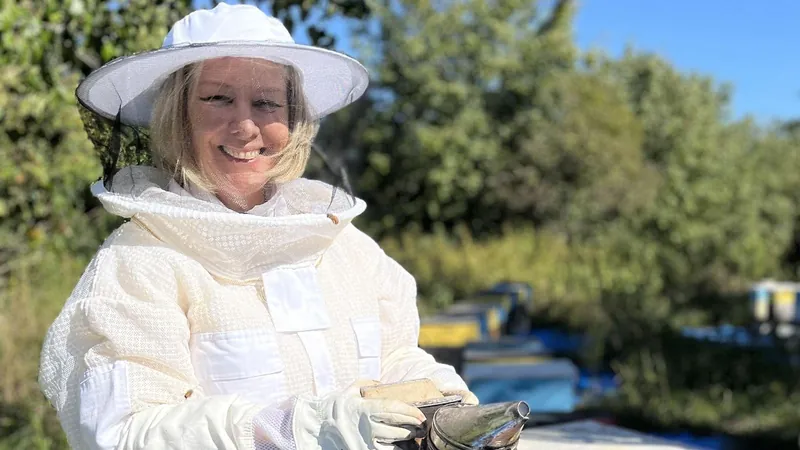
Revolutionizing Agriculture: Startup Dalan Animal Health Develops Vaccine for Honeybees with Plans to Save Shrimp Next!
2024-12-17
Author: Ming
Innovative startup Dalan Animal Health is on a mission to protect honeybees through groundbreaking vaccination technology, with aspirations to branch out into other invertebrate species, including shrimp.
In an era where bee populations face alarming declines, Dalan Animal Health, founded by Annette Kleiser in 2018, has made significant strides. The company received government approval for an oral vaccine that enables commercial beekeepers to provide immunity against the destructive bacterial disease known as American Foulbrood. This vaccine works through a method where worker bees feed the vaccine to their queens using royal jelly, thus granting immunity to the larvae that will hatch.
Kleiser emphasizes the critical importance of insects, stating, "We cannot survive on this planet or anywhere else without insects." Honeybees play a vital role in pollinating many crops vital for human consumption, making their health and population sustainability a central focus for Dalan.
Each year, beekeepers witness around a 50% mortality rate among bee colonies due to various factors, including parasitic infestations, crop pesticides, and environmental stressors from transportation. This staggering loss prompts serious questions about the viability of commercial beekeeping: “Imagine a cattle farmer losing 30 to 50% of their cattle each year,” points out Matt Mulica from the Keystone Policy Center.
Dalan's vaccine intends to address these catastrophic losses and assist commercial beekeepers, who manage thousands of colonies across the nation, in maintaining their hives for agricultural tasks, such as pollinating almonds and cucumbers.
However, persuading beekeepers to adopt the vaccine remains a challenge, given its cost of $10 per application per queen. Industry stakeholders like Chris Hiatt express skepticism about the value of the expense in context of beekeeping's already thin profit margins. Yet, if vaccinated bees can result in greater honey yields or healthier colonies, many believe that the investment could quickly pay off.
Current trials of the vaccine indicate promise, with discussions underway with numerous countries in Asia, Europe, and South America to adopt the vaccine for their local bee populations. Dalan has successfully raised $14 million in funding, as it aims to guide its technology to a worldwide audience.
Importantly, the ambition of Dalan does not stop at honeybees. With an eye on other invertebrates, the company plans to apply its vaccination techniques to shrimp. The shrimp farming industry faces significant losses from various diseases, often exacerbated by the use of harmful chemicals, revealing a critical need for sustainable solutions. Dalan's research into common shrimp diseases is already yielding encouraging results with initial survival rates showing a 64% success rate.
Looking to the future, Kleiser envisions a broader application of this approach; if Dalan can successfully vaccinate honeybees and shrimp, the potential could extend to mosquitoes that transmit diseases affecting humans. This advancement in insect vaccination is not just about safeguarding agriculture; it could ultimately play a pivotal role in addressing global health challenges exacerbated by climate change.
Dalan Animal Health stands at the forefront of a revolutionary approach to agriculture and potentially human health, as it pioneers technologies that could reshape our interactions with the ecosystems that sustain us. As awareness and concerns about insect population declines grow, innovations like these may hold the keys to food security and environmental stewardship.



 Brasil (PT)
Brasil (PT)
 Canada (EN)
Canada (EN)
 Chile (ES)
Chile (ES)
 España (ES)
España (ES)
 France (FR)
France (FR)
 Hong Kong (EN)
Hong Kong (EN)
 Italia (IT)
Italia (IT)
 日本 (JA)
日本 (JA)
 Magyarország (HU)
Magyarország (HU)
 Norge (NO)
Norge (NO)
 Polska (PL)
Polska (PL)
 Schweiz (DE)
Schweiz (DE)
 Singapore (EN)
Singapore (EN)
 Sverige (SV)
Sverige (SV)
 Suomi (FI)
Suomi (FI)
 Türkiye (TR)
Türkiye (TR)